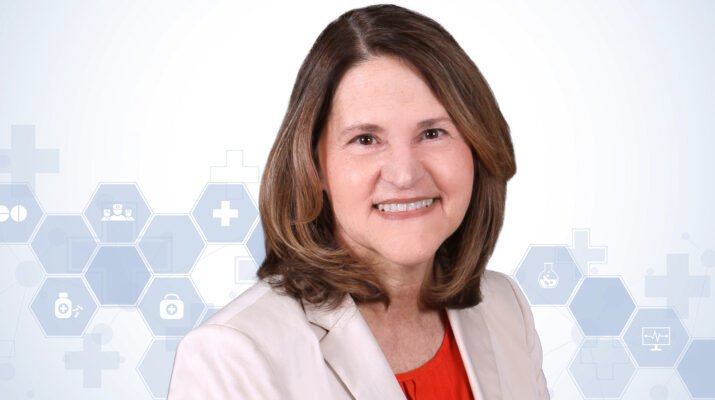New Helio Health interim president and CEO says organization serves 17,000 people annually with a budget that will surpass $100 million this year. ‘We’re large because the needs in the communities have expanded,’ she says
By Mary Beth Roach
Q: Can you give us an overview of Helio Health?
A: Helio Health provides substance use and mental health disorder treatment. We provide it in four regions, mainly Syracuse, Utica, Rochester and Binghamton, and we provide services for approximately 17,000 people a year. We do that in various treatment modalities. We have inpatient, outpatient, residential and in-community services and housing services.
Q: How many employees does Helio Health have and how big is your budget?
A: We have more than 1,000 employees and contractors. Some are contracted employees and some are specific employees of Helio Health. Our budget in 2023 is going to surpass $100 million.
Q: When did you become interim president and CEO, and what was it about the position that appealed to you?
A: I started effective Jan. 1, 2023. I started with this agency a long time ago as a counselor in our outpatient division, and shortly after that, I was asked to be the director of our outpatient. A few years after that, I was asked to be the director of our inpatient, and then following that, I became the director of quality assurance, training and compliance. Most recently, I served as the executive vice president and chief operating officer. Most of my adult professional life has been spent at this organization. [These positions have been at Helio Health, formerly Syracuse Behavioral Healthcare.] When we learned of our former president and CEO accepting a position in Chicago at a large national nonprofit, I was the exact candidate to be able to fulfill the shoes of the interim president and CEO and potentially the permanent president and CEO. I know this organization better than most and my heart and my personal dedication have been to serve the mission of this organization as long as I can remember.
Q: What are some of your goals for Helio Health for the future?
A: Our goals for Helio Health continue to be to serve the needs of the community where we provide services. We’re large because the needs in the communities have expanded. We’ve expanded our services in all those different areas to be able to meet those needs. I see us continuing to assess what the needs in the communities are, to be able to provide access to services and quality. We also have a training institute.
Q: Do you have a leadership style or philosophy?
A: I think my leadership style is two-fold. I believe very strongly in servant leadership. I’m here to serve Helio Health. That’s because of the work that we do. I think that in order to do the work appropriately and with respect, you have to be mission-focused. I’m going to lead them, supporting them and supporting their work at Helio Health. The other part of my leadership style — and it is really more of an integrated approach — is trying to help people grow in their own development. In some ways it’s taking any kind of shade off of their lamp and letting their light shine on their own skills and their own expertise, so that they can grow professionally at Helio Health as I have.
Q: You mentioned that you have now 17,000 clients. Have those numbers grown within the last five years?
A: There’s been significant growth in the last five years. Some of that is because we’ve grown significantly in the last five years. Part of that is there was a community need. It was identified; we were approached to fill that need and we expanded our services accordingly. In the last five years, from 2017 to 2022, we started providing opiate treatment programs, in-community services; we expanded our reach in Binghamton and Utica. We merged with a couple of other behavioral health companies. The need in the communities both for mental health treatment and substance use disorder treatment and housing, has expanded.
Q: You alluded to the mental health crisis. What kind of progress are we making?
A: I guess the answer is how you define progress. The progress that I see is that we are having this conversation about mental health. We’re recognizing that it is a need. In Onondaga County we are in 18 different schools. We’ve been asked to provide mental health and substance use counseling in the school setting. We are doing mental health first aid training. We’re doing teen mental health training — specific trainings geared toward helping in a preventative way, helping people before they reach a mental health crisis. That people have issues that they’re dealing with as it relates to their mental health and that they’re open to having themselves and their family members receive treatment is progress. Are we making progress as it relates to the number of crises, the number of suicides? Our statistics would tell you “no.” Because of that, there’s attention being paid to it. It says something needs to be done. It means we will have more treatment programs. Helio Health is going to be the regional intensive crisis stabilization center, where people can come 24/7 and be evaluated and referred to the appropriate level of care. It isn’t going to take the place, nor should it, of an emergency room or a psychiatric emergency room, but it’s the window of opportunity when people say “I need help.” Being able to be available in a 24/7 setting is critically important.
To learn more about Helio Health, visit www.helio.health or call 315-471-1564.

